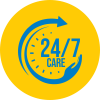Best Cataract Surgery Hospital in Mumbai
Affordable Rates
Highly Experienced Eye Specialist Doctors

EMI Facility Available

24*7 Hospital Care
Meet our Doctors

Dr. Sai Mehta
Eye Health Specialist
Dr. Sai Sanjeev Mehta – Best Ophthalmologist in Navi Mumbai | Expert Eye Surgeon in Navi Mumbai
Dr. Sai Sanjeev Mehta, a highly skilled ophthalmologist in Navi Mumbai, is dedicated to providing advanced eye care using the latest diagnostic tools and surgical techniques. With over two years of expertise, Dr. Mehta specializes in LASIK, cataract surgery, refractive procedures, and comprehensive ophthalmic care. As a leading eye surgeon in Seawoods, he is committed to delivering the best vision outcomes for his patients at MPCT Hospital.
Expertise in Advanced Eye Care & Eye Surgery
Dr. Mehta offers a wide range of ophthalmic treatments, including:
✔ Cataract Surgery – A trusted cataract surgeon in Navi Mumbai, Dr. Mehta provides advanced phacoemulsification cataract surgery for clear vision restoration.
✔ LASIK & Refractive Surgery – As an expert in LASIK surgery in Navi Mumbai, Dr. Mehta performs blade-free LASIK, PRK, and SMILE laser vision correction to eliminate dependency on glasses and contact lenses.
✔ Glaucoma Management – Specializing in glaucoma diagnosis and treatment, Dr. Mehta helps prevent vision loss through early intervention and advanced treatment options.
✔ Retina Evaluation & Treatment – Offering retinal disease management, including diabetic retinopathy, macular degeneration, and retinal detachment treatment.
✔ Corneal Disorders – Expertise in corneal disease treatment, keratoconus management, and corneal transplants for enhanced vision clarity.
Why Choose Dr. Sai Sanjeev Mehta – Top Eye Specialist in Navi Mumbai?
✔ Advanced surgical expertise in LASIK, cataract, and refractive surgery
✔ Personalized eye care consultation in Seawoods, Navi Mumbai
✔ Cutting-edge ophthalmic technology for precise diagnosis and treatment
✔ Expertise in managing glaucoma, retina disorders, and corneal diseases
✔ Trusted ophthalmologist in MPCT Hospital, Navi Mumbai
✔ Personalized eye care consultation in Seawoods, Navi Mumbai
✔ Cutting-edge ophthalmic technology for precise diagnosis and treatment
✔ Expertise in managing glaucoma, retina disorders, and corneal diseases
✔ Trusted ophthalmologist in MPCT Hospital, Navi Mumbai
Book an Appointment with Dr. Sai Sanjeev Mehta – Best Eye Surgeon in Seawoods
If you’re looking for the best ophthalmologist in Navi Mumbai or an expert eye surgeon in Seawoods, visit MPCT Hospital for top-tier eye care, LASIK, cataract surgery, and vision correction treatments.
📍 Location: MPCT Hospital, Seawoods, Navi Mumbai
📞 Book Your Eye Consultation Today!
📞 Book Your Eye Consultation Today!
Book an appointment
What is a Cataract?

A cataract is an eye disorder that affects the vision of a person suffering from it. Cataracts are formations of a dense and cloudy layer in the lens of the eyes. This layer obstructs the passage of light through the lens, resulting in unclear and blurred vision in the person affected by it.
The formation of cataracts happens when proteins in the eye accumulate at the lenses, preventing them from sending clear images to the retina (part of the eye that processes the things we see). The retina is responsible for sending signals to the brain through optic nerves to process vision as a response.
Here are some of the common cataract symptoms:
- Blurry Vision
- Night blindness
- Seeing faded colours
- Halos around lights
- Double vision
- Frequent change of glasses (for people with glasses)
- Sensitivity to glare
To get treatment for cataracts you will need to visit an eye specialist (opthalmologist). The doctor might perform certain diagnostic tests to determine the severity of cataracts and the damage caused by them. These diagnostic tests may include:
- Visual acuity test: The test checks the power of your eyes and the clarity with which you view objects.
- Retinal exam: This test images the backside of the retina to check for the signs of cataracts.
- Slit-lamp test: The slit lamp inspects the functioning of all parts of the eye.
- Tonometry test: This test determines the pressure inside the eyes.
The doctor can suggest the following surgeries for the treatment of cataracts:
Phacoemulsification
This is one of the most modern methods of cataract surgery. A small incision is done at the edge of the cornea of the eyes. A tiny device is inserted through it that emits high-frequency ultrasound vibration to dissolve the cataract formation. The dissolved parts are suctioned out of the eyes. The procedure is very quick and does not cause any pain to the eyes.
Micro incision cataract surgery (MICS)
This surgery requires a very high level of precision since an incision of 1.8 mm is done to reduce the invasion of the eyes. The cataract is removed surgically through the incision and minimises recovery time due to the minute nature of the incision.
Femtosecond laser-assisted cataract surgery (FLACS)
This surgery uses advanced laser-assisted technology to remove cataracts from the eyes. An optical imaging system is used to perform corneal incisions and fragments cataracts on the lenses.


Why opt for Cataract Treatment from Surana Hospital

At Surana Hospital, we deliver rewarding outcomes with compassion. We house the finest ophthalmologist surgeons who are skilled in diagnosing and treating each condition with precision. We approach our treatments systematically and back them with cutting-edge technology.
Book an Appointment
Our commitment to your well-being is boundless.

All we do is care.
All we do is care.
To aid us in our journey of extending medical care to those in need, our team of medical professionals exhibit their quality-centric expertise in effective treatments. We bring together the finest orthopaedic surgeons under one roof, making us the best Ophthalmologist hospital in Mumbai. Our specialists carry out quality-centric practices backed by cutting-edge equipment, ultimately delivering world-class healthcare.

Discover what our patients have to say about their experience.
Frequently Asked Questions
Expect gradual improvement in vision over weeks with mild discomfort initially. Follow post-op instructions for optimal recovery.
Risk associated are very minimum and in rare case it may occur like inflammation, increased eye pressure. At Surana hospital our expert doctors takes maximum care to avoid such risk
Expect gradual vision improvement over days to weeks post-surgery. Follow surgeon's instructions for a smooth recovery.
Costs vary based on surgery type, treatment plan, and insurance coverage. Consult directly with Surana Hospital for an accurate estimate.
Surana Hospital features top ophthalmologists specializing in advanced eye care, including cataract surgery, retina treatments, and laser vision correction.

